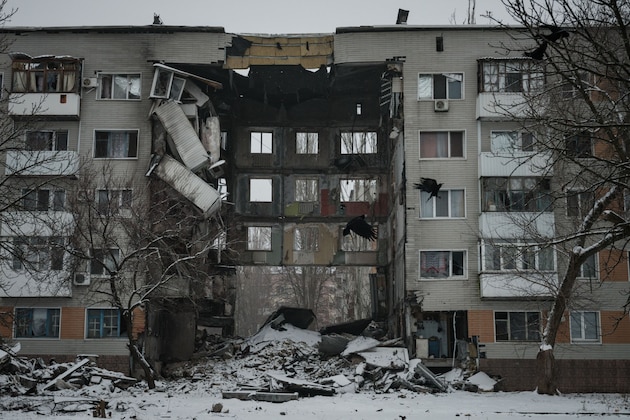A Ukrainian reporter was traveling with a colleague from Moldova in the war-torn city of Bakhmut. Only two kilometers from the center, Russian Wagner mercenaries continued to advance on the city.
According to the Ukrainian police, there are still around 5,900 civilians in Bakhmut, including more than 200 children. The reporter tells the Guardian that moments of calm are rare in the almost deserted town of Bakhmut. “Not only is the sound of incoming and outgoing artillery fire constant, but the variety in volume and texture of the sounds shows just how much firepower is being brought into the battle by both sides.”
Sometimes long salvos of rifle and machine gun fire rang out from the eastern outskirts of Bakhmut. The reporters want to spend the night in the basement of their house with Ostapenko, 63, and Valentyna, 59, who refused to give their last name out of fear.
A Ukrainian soldier warned of this. “You can if you want, I just wouldn’t stay with these people. Most openly say they are waiting for Russia.”
In Ukrainian slang, these people would sometimes be called “zhduny”, which means “the waiting ones” in Russian. With no information about the outside world, no savings or connections to help them evacuate, those remaining residents of Bakhmut were frozen inactive as the fighting drew closer.
For older generations in particular, the reality of months of brutal war is difficult to digest. Whether out of apathy, hopelessness, or dreaming of the made-up propaganda idea of the “Russian world,” many would make the simple but often deadly choice: wait.















